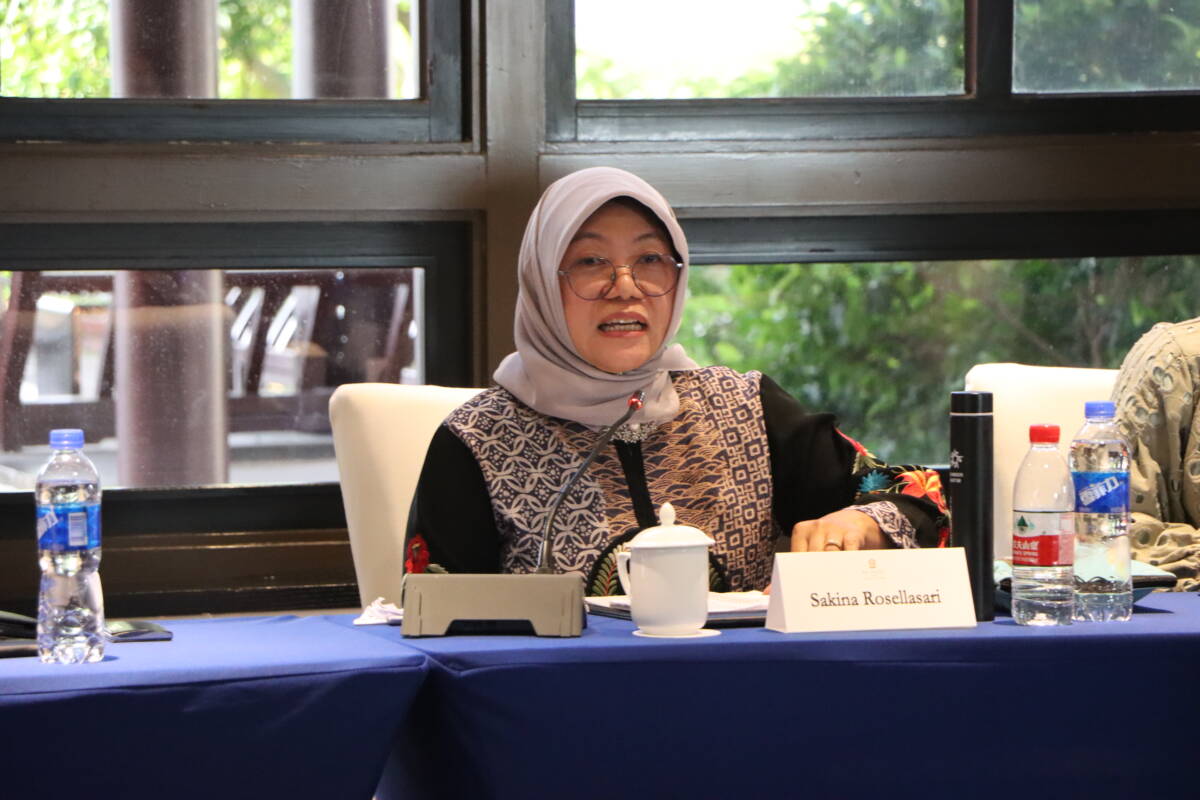Suzhou, June 13, 2025 – Suzhou, located in Jiangsu Province, is one of the manufacturing centers with four main industries, namely electronics, equipment manufacturing, advanced materials and renewable energy. Continuing the series of 75 Years Indonesia–China Exchange Visit programs that took place from June 10-14, 2025, the Indonesian delegation led by the Institute for Essential Services Reform (IESR) arrived in Suzhou on Friday (6/13). The participants traveled one hour by high-speed train from Shanghai.
Chenjun Lu, Director of the Suzhou Development and Reform Commission, said that Suzhou’s Gross Domestic Product (GDP) reached 2.67 trillion yuan in 2024, equivalent to around USD 368 billion, ranking 6th in mainland China and 20th in the world. Not only is Suzhou a major manufacturing hub, it is also home to more than 18,000 foreign companies, including 175 Fortune Global 500 companies. Not only that, the city is highly committed to renewable energy and green development.
In the past decade, Suzhou has managed to record an average economic growth of 6.7 percent per year, with energy consumption growing by only 2.4 percent. By the end of 2023, Suzhou’s renewable power generation capacity will reach 6.54 gigawatts, supported by 10 electrochemical energy storage stations and 12 hydrogen filling stations.
“The figures show that even as the city continues to develop, efforts to reduce environmental impact remain a top priority. Suzhou is highly committed to creating a cleaner and more sustainable city,” said Lu.
Lu emphasized that Suzhou also has 12 nationally recognized green design companies, as well as more than 77 green factories operating in green industrial parks. With his government’s commitment, Lu emphasized the importance of international collaboration in addressing the challenges of climate change.
“We invite Indonesia to deepen cooperation in the clean energy sector through various initiatives, including the “Dual-Zero” City Development Alliance which focuses on reducing carbon emissions and achieving carbon neutrality,” Lu emphasized.
Sakina Rosellasari, Head of the Investment and One-Stop Integrated Service Office (DPMPTSP) of Central Java Province (Jateng) stated that in the last five years (2020-2024), Central Java has experienced a significant increase in investment, especially in the first quarter. One of the sectors that dominates investment in this province is electricity, gas, and water, which shows that the need for energy infrastructure is very high. In addition, industrial sectors that focus on renewable energy, such as solar, wind, and biomass power plants, have also experienced rapid growth.
“Foreign investment, especially from China, has become one of the largest contributors to industrial development in Central Java. China, after Japan, is the largest investor investing in the footwear and textile sectors, which are labor-intensive sectors and provide many jobs for the local community,” said Sakina.
Furthermore, Sakina highlighted the investment in the renewable energy sector in Central Java which has experienced a significant shift. Many investments are focused on the electric vehicle sector and the battery industry, which come from China. This reflects the shift in global trends towards the use of clean and sustainable energy.
“Reflecting on this global trend, Central Java continues to strive to attract more investment, especially in the renewable energy sector. With supportive policies and rapidly developing infrastructure, this province is ready to become a green energy center in Indonesia. Given that Central Java has various renewable energy projects that are ready to receive investment, such as mini-hydro, geothermal, and waste-to-energy (burning waste for energy). These projects are spread across several areas such as Banyumas and Grobogan,” said Sakina.

